
When the RadExpand 5 was first unveiled, I was surprised to see the company go in this direction and replace the RadMini with a new model. But now that I’ve spent some good time in the saddle, I see exactly what Rad was thinking, because the folding e-bike draws on some of the best parts of every other e-bike in the company’s wide lineup.
I’ll start by saying that it’s going to be hard for Rad Power Bikes to top their own RadRunner e-bike, which holds a special place in my heart as such an innovative and high utility design.
But the cool thing about the RadExpand 5 is that it’s almost like a folding version of the RadRunner, though with some key differences I’ll cover soon.
That design direction though, taking RadRunner-like traits and applying them to a folding e-bike, means that the offers huge utility in a package that is more convenient for anyone who regularly transports their e-bike or needs to fold it to fit in a tight space.
To get a down-and-dirty sense of the new e-bike, check out my video review below and join me on my rides. Then read on for my complete thoughts on this new electric bike model!
RadExpand 5 video review
RadExpand 5 tech specs
- Motor: 750W rear geared hub motor
- Top speed: 32 km/h (20 mph)
- Range: 45-72 km (25-45 mi) depending on user input
- Battery: 48V 14Ah (672 Wh)
- Weight: 28.3 kg (62.5 lb)
- Max load: 125 kg (275 lb)
- Rear rack max load: 27 kg (59 lb)
- Brakes: Mechanical disc brakes
- Extras: Sturdy kickstand, LED display, 7-speed shifter, integrated head/tail/brake LED lights, bell, 4 pedal assist settings, half-twist throttle, mounting for front and rear racks/accessories
Fold, unfold, ride, repeat
The of course brings the same Rad performance we know and love from the company’s other e-bikes. That means 20 mph (32 km/h) on either throttle or pedal assist, and 25-45 miles (40-72 km) of range per charge.
That’s plenty of range for most everyday riders, whether you’re using the bike for leisure, commuting, or local errand running. As much as I’d love to see a Class 3 Rad bike that gets up to 28 mph (45 km/h), we’re set at 20 mph until Rad’s lawyers let us go faster.
I’m definitely glad to see the built-in lights stick around for this model, as do the fenders and the rear rack. All of that equipment comes standard so you don’t have to start adding accessories. Though if you want to deck the bike out, Rad of course does have an . Seriously, they’ve got so many e-bike accessories that they even have things for your dog.
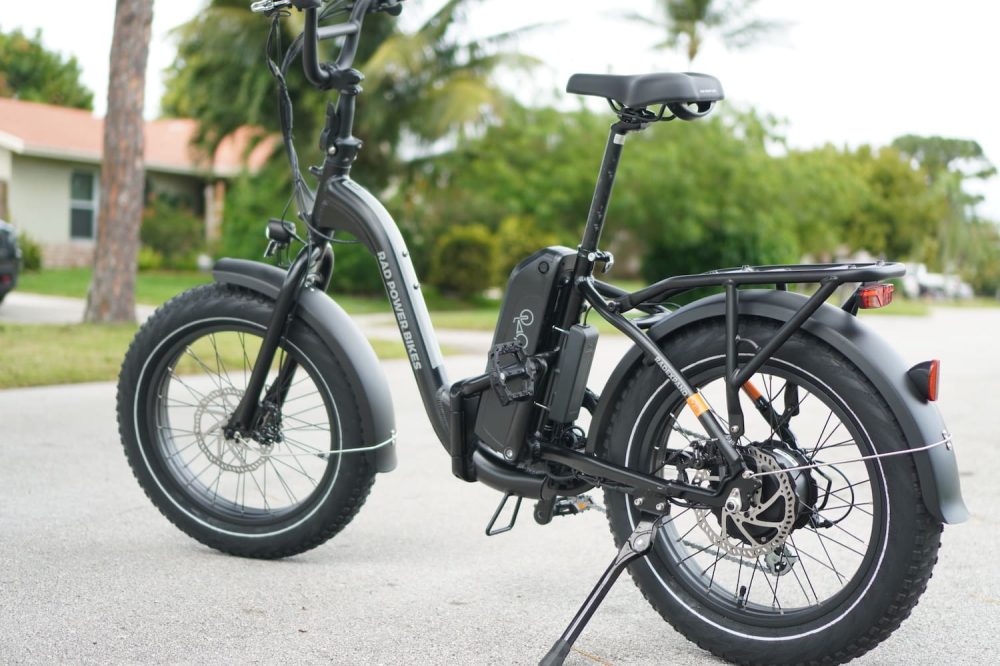
I’m also a big fan of that high handlebar setup as it helps give the bike its upright seating position and comfortable geometry.
Plus the handlebars even fold down, which makes it easy to stick the bike against a wall or behind a couch and have it take up less room since the bars lay flat against the fork instead of sticking out sideways like, well, bicycle handlebars.
That’s also a great trick to use when loading the bike in the back of an SUV or minivan.
On other bikes, I’ll often have to loosen the bars by unbolting the four bolts that hold the bars to the stem and letting them flop down. That allows the bike to become short enough to stand up in most SUVs or minivans. But it’s not great for the bike because you can wear down those threads over time with repeated tightening and loosening. This folding handlebar setup instantly drops the bars lower and means you can easily slide the RadExpand 5 into shorter areas, no tools required.
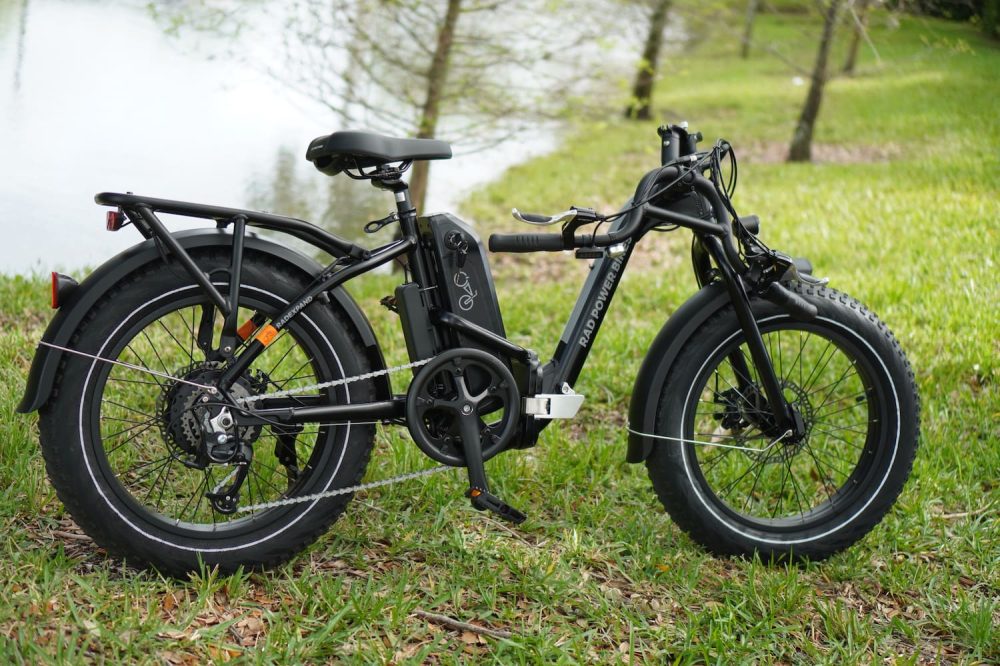
The display/remote is borrowed from Rad’s other economical bikes, namely the RadRunner and RadMission. That means we get a simplified LED dot display to tell us the battery capacity, pedal assist power mode, and the headlight/tail light status. There’s no odometer or speedometer, which is a bit of a bummer for people that really like data, but not necessarily a deal breaker.
Unlike the economical bikes though, the RadExpand 5 borrows its wide tires from Rad’s true fat tire e-bikes, sticking with a 4″ size to give more cushioning to the ride and more off-road riding control. The lack of a suspension fork (another move from the Mission/Runner playbook) means that the fat tires are even more important for the ride comfort. I did plenty of trail riding though on grass, dirt, and sand (as you can see in my video above), and I often couldn’t even tell that the bike lacked suspension. Those fat tires are amazing at soaking up bumps.
I also love the step-through frame and I’m glad this more or less matches the RadRunner’s step-through frame. It’s just such an easy way to hop on and off of the bike, especially when that rear rack is loaded high. I don’t have kids of my own, but I can imagine how a kid’s seat on back would make the step-through design a winner – no more kicking Junior in the face each time you hop on!
The only slight issue with the step-through setup is the battery on the forward part of the downtube means the key sticks out and sometimes rubs my leg when I pedal. The obvious answer is, “Duh, you aren’t supposed to ride with the key in the battery.” And that’s correct. But c’mon, many of us do it sometimes (it’s a great way to not lose your key!), and so it’s something I’ve noticed on occasion. But a friend who also tried the bike with me said it wasn’t noticeable, so maybe I just pedal more narrowly.
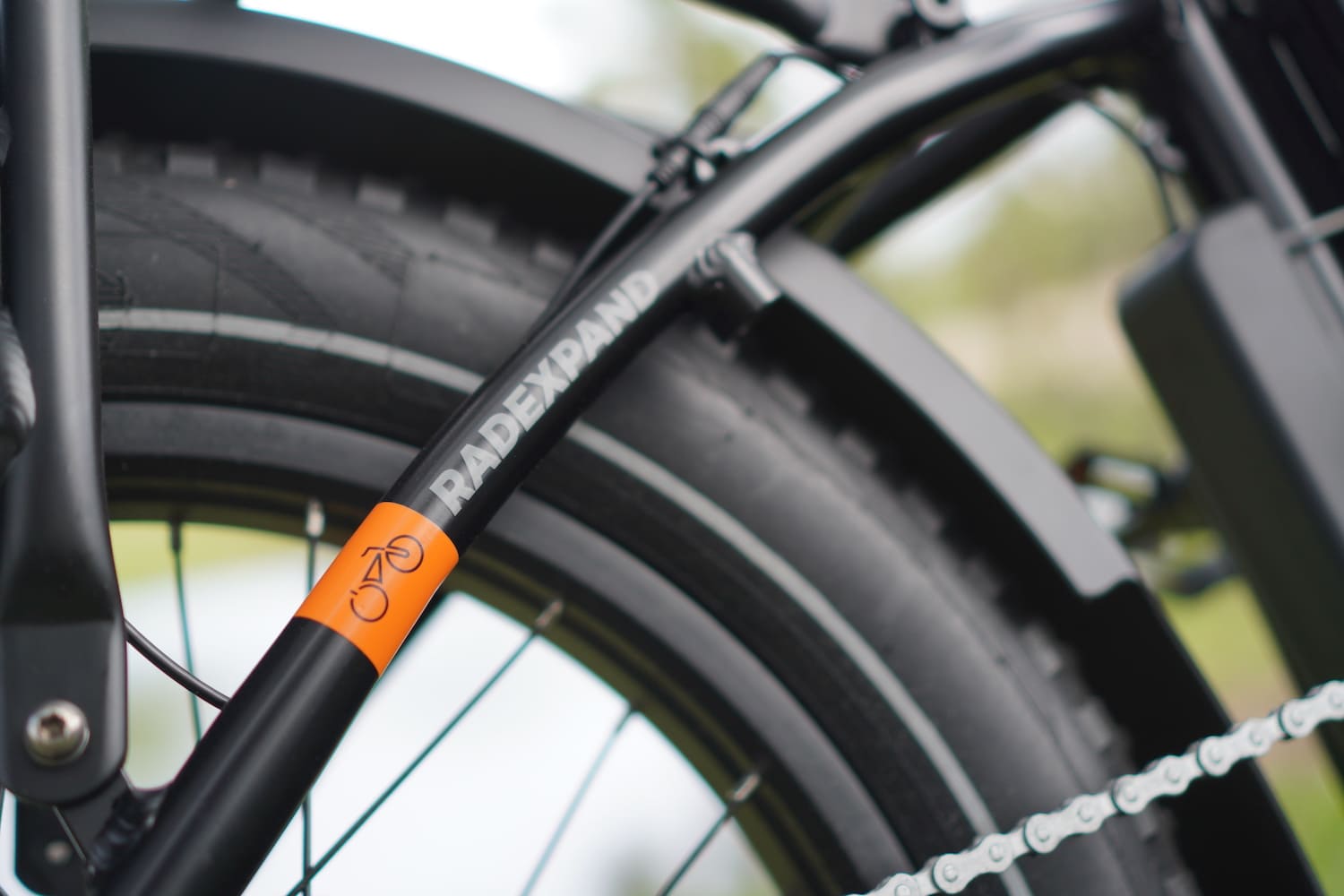

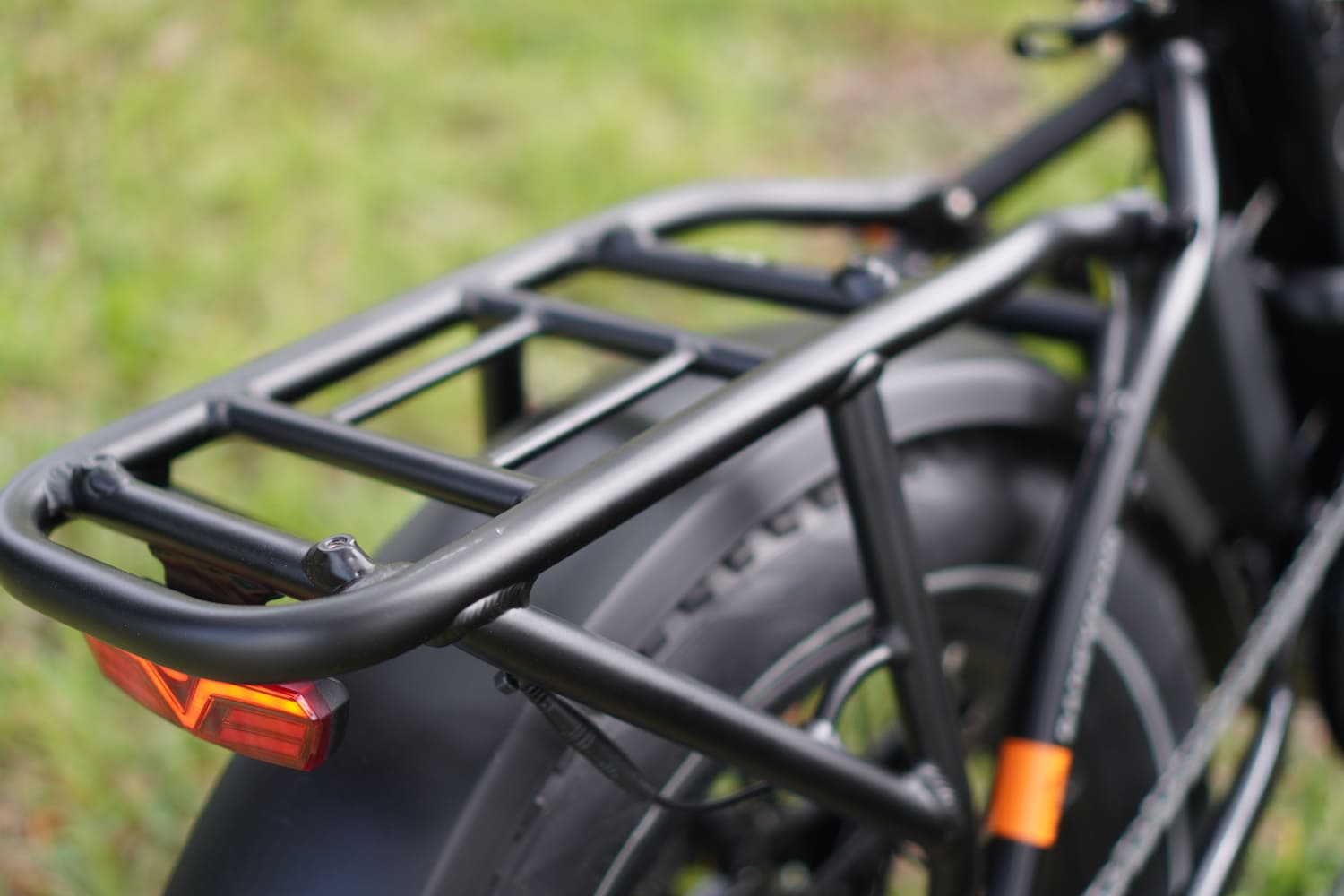
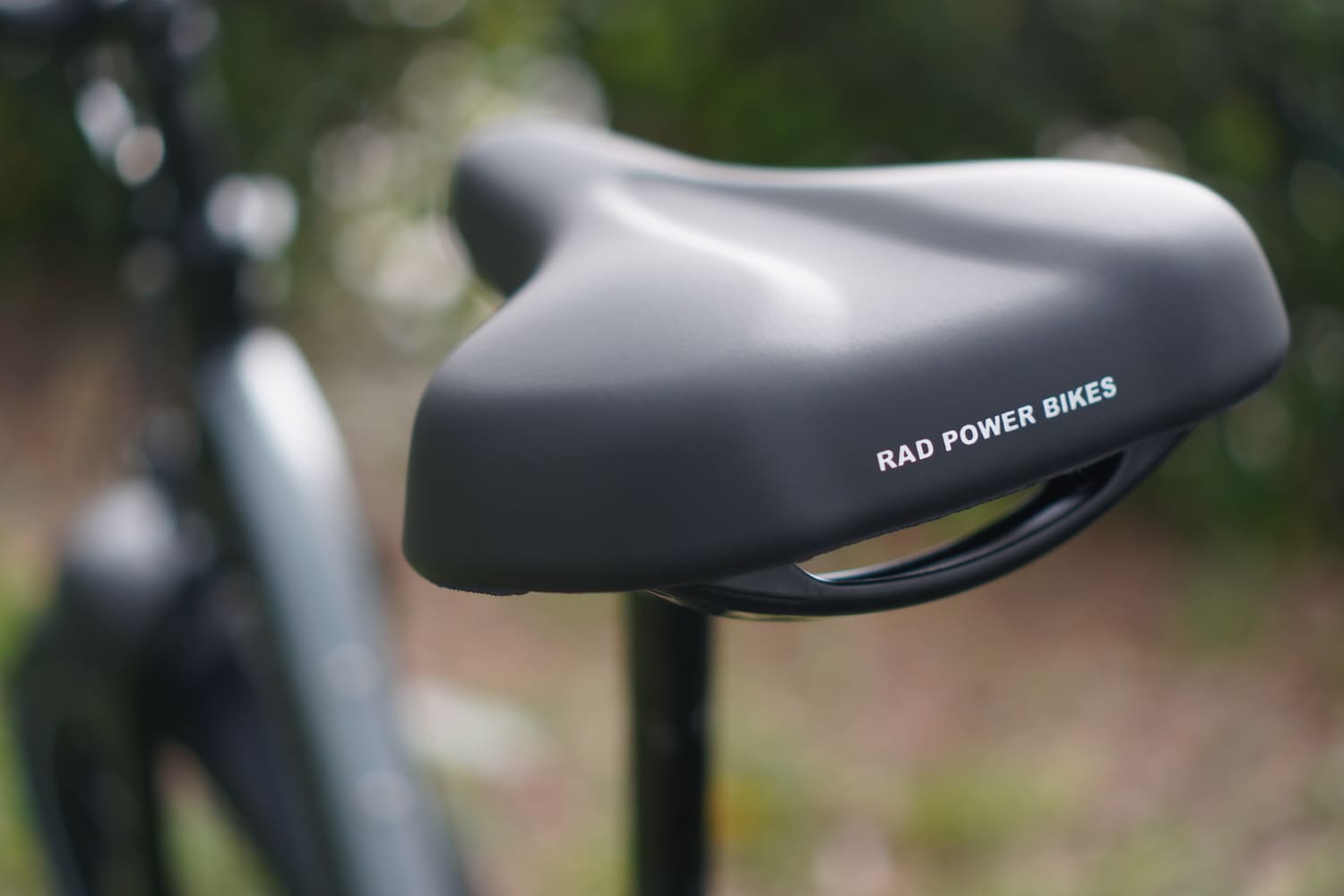
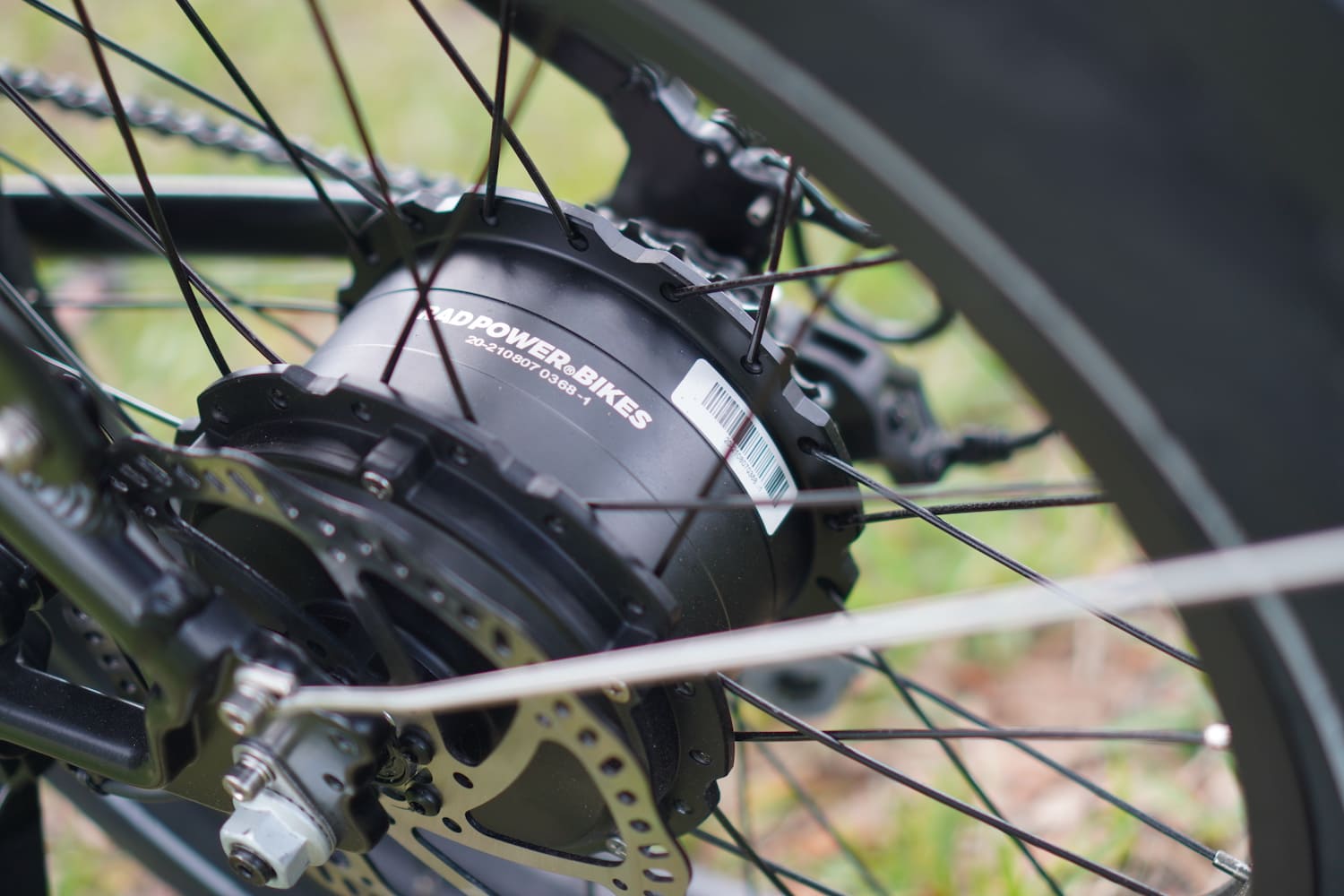
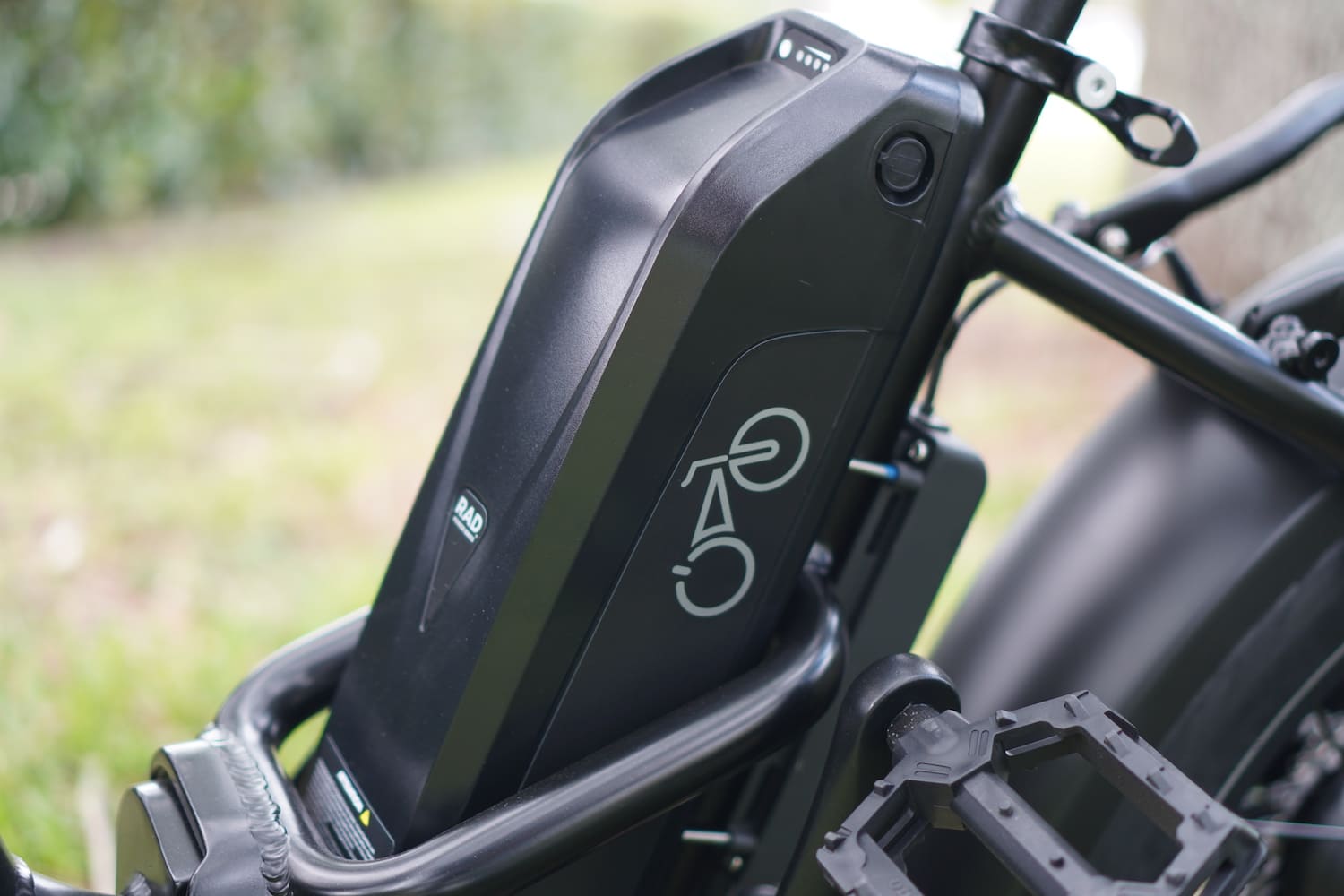
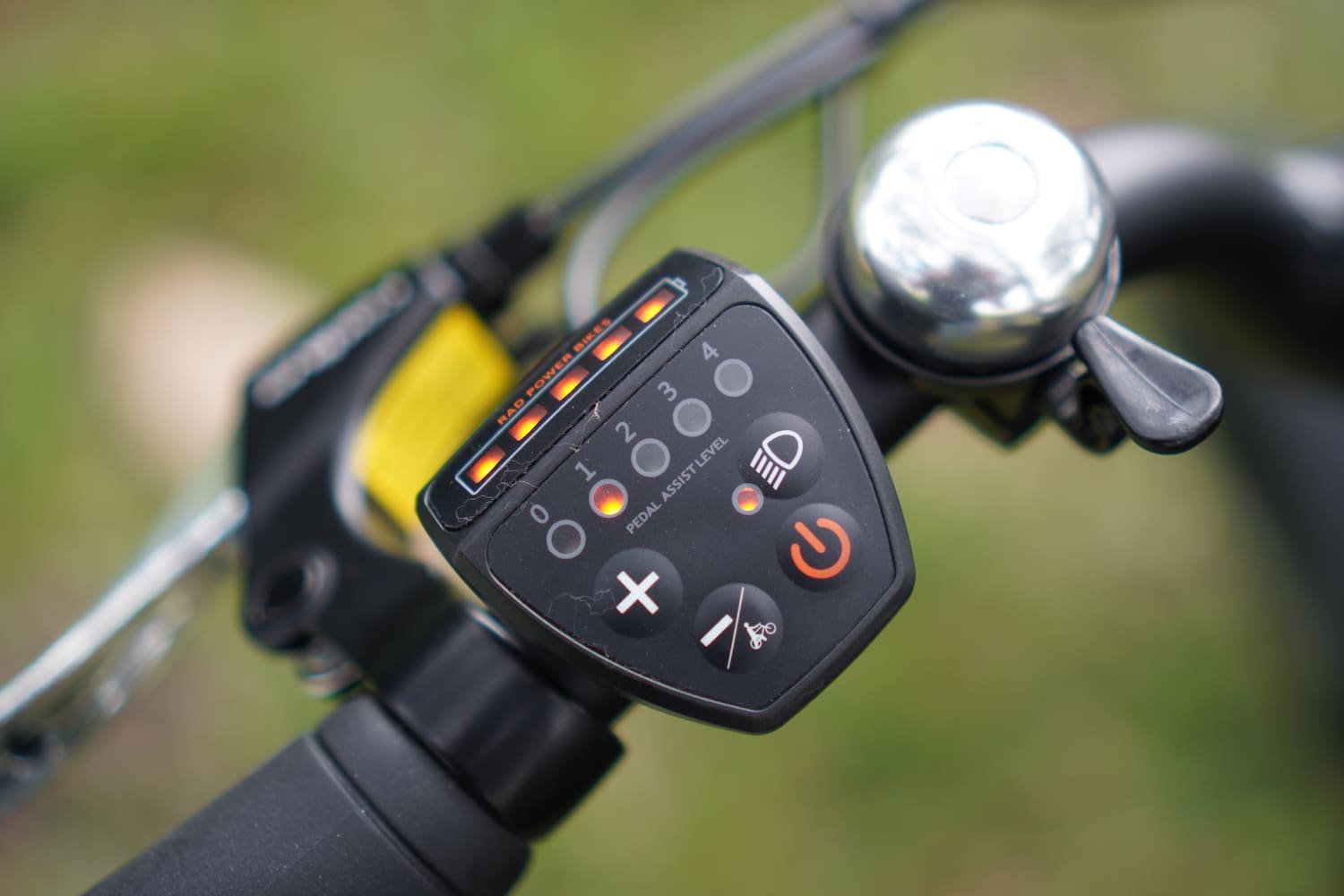

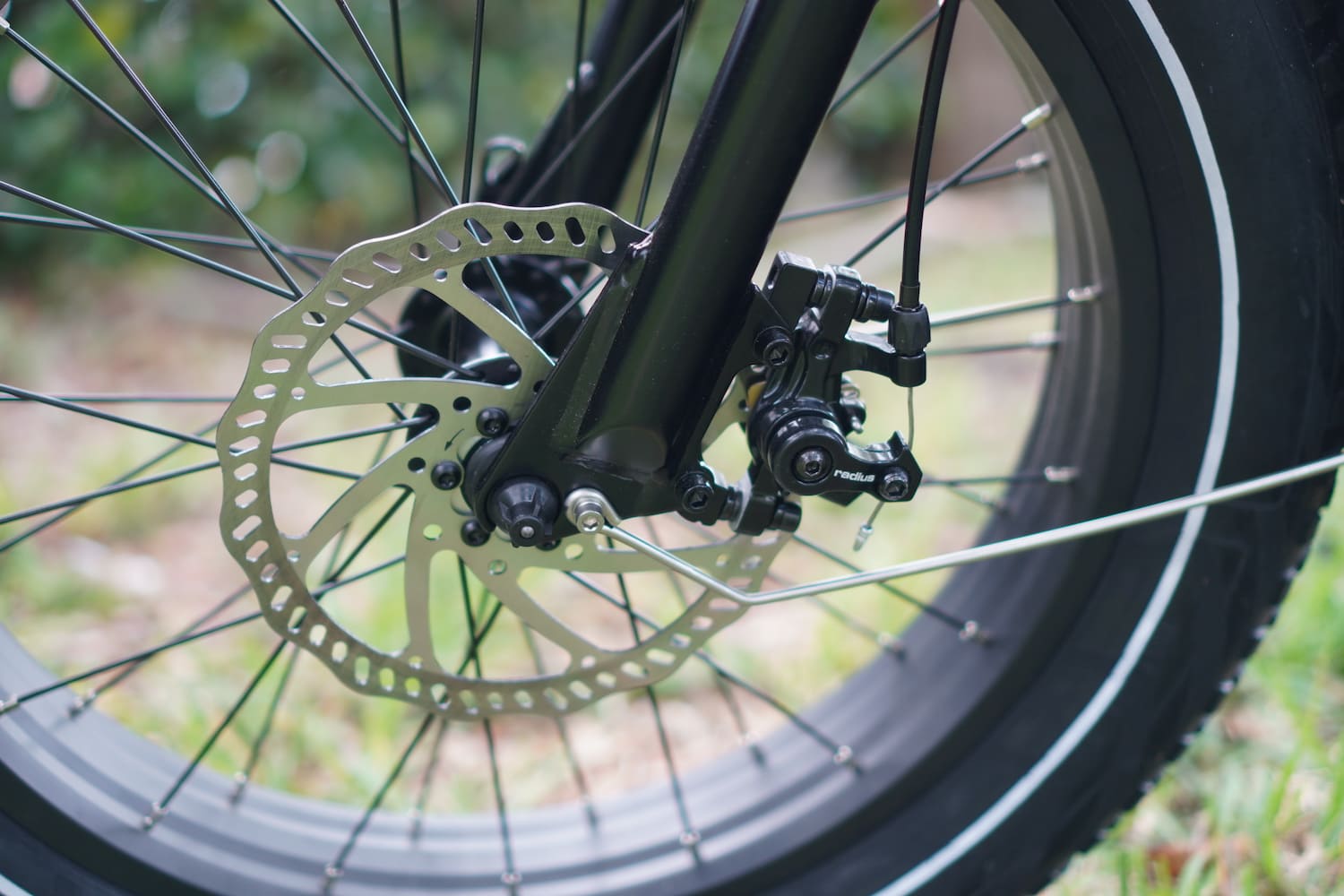
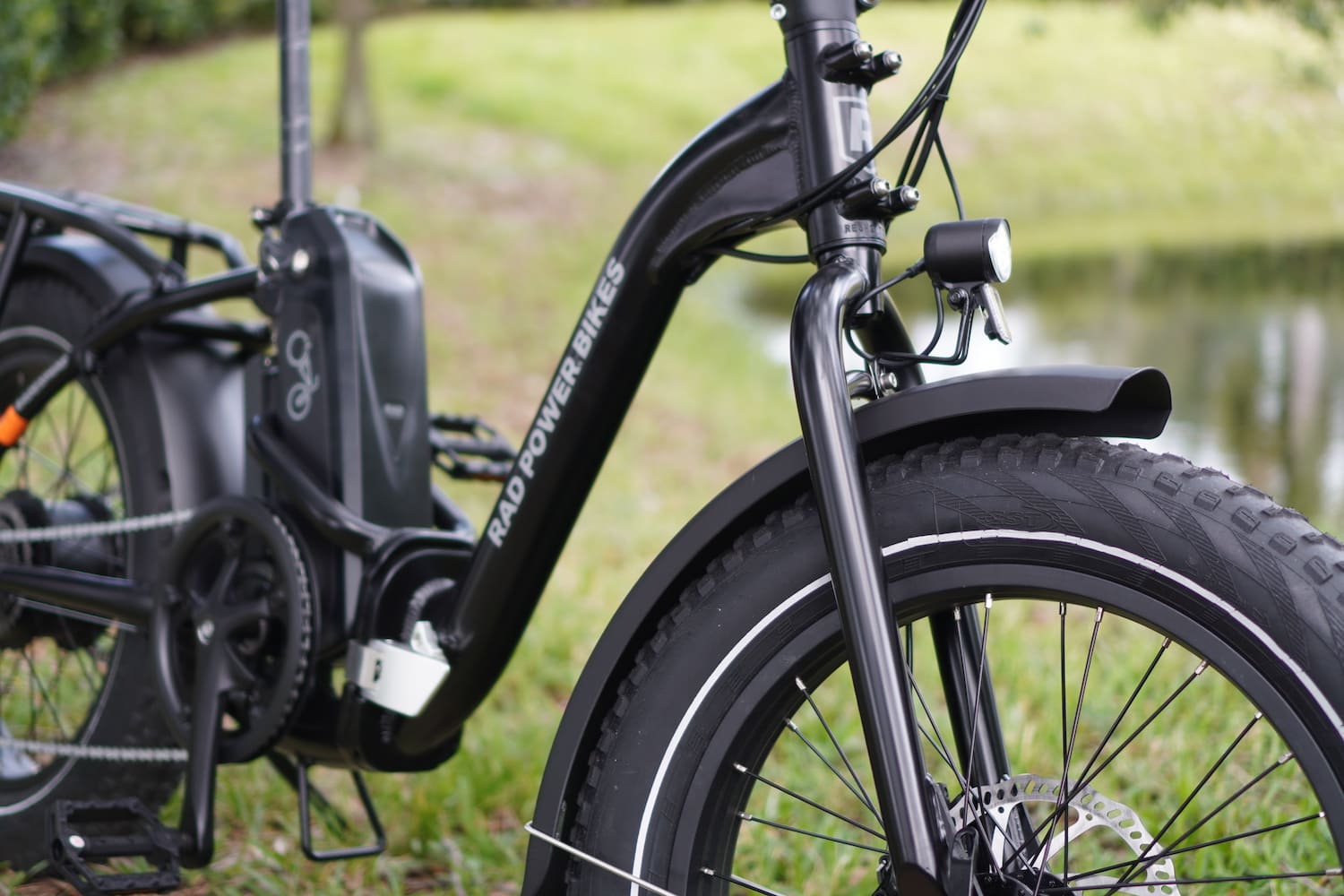
I’m quoting a lot of RadRunner-style inspirations here, but the RadExpand 5 also goes its own way in many respects. For example, the 7-speed shifter is a big improvement over the RadRunner for anyone who has to deal with hills or just likes to downshift for that extra torque.
One of my few gripes on the bike is – believe it or not – the bell. For some reason (almost certainly “supply chain issues”), Rad switched from a brake lever-integrated bell to a standalone bell. Normally that’d be fine, even though I prefer the index finger-actuated brake lever bell. However, there’s a problem here. The display/remote on the left bar end is fairly wide, meaning you have to reach past it to get your thumb on the bell. Unless you’ve got huge thumbs, that means you have to slide your hand in pretty far and loosen your finger grip on the bar to stretch that far. You could swap the bell and the display, but then you’d have the same problem reaching the display (which you use much more).
This is admittedly a minor inconvenience, but it’s an inconvenience nonetheless. A good bike bell that is easy to use is actually quite important to me as I often ride in areas with heavy pedestrian traffic, and it is very helpful to angrily ding at people that walk into your lane. I really wish Rad switches back to the brake lever bell, as that was a big winner in my opinion.
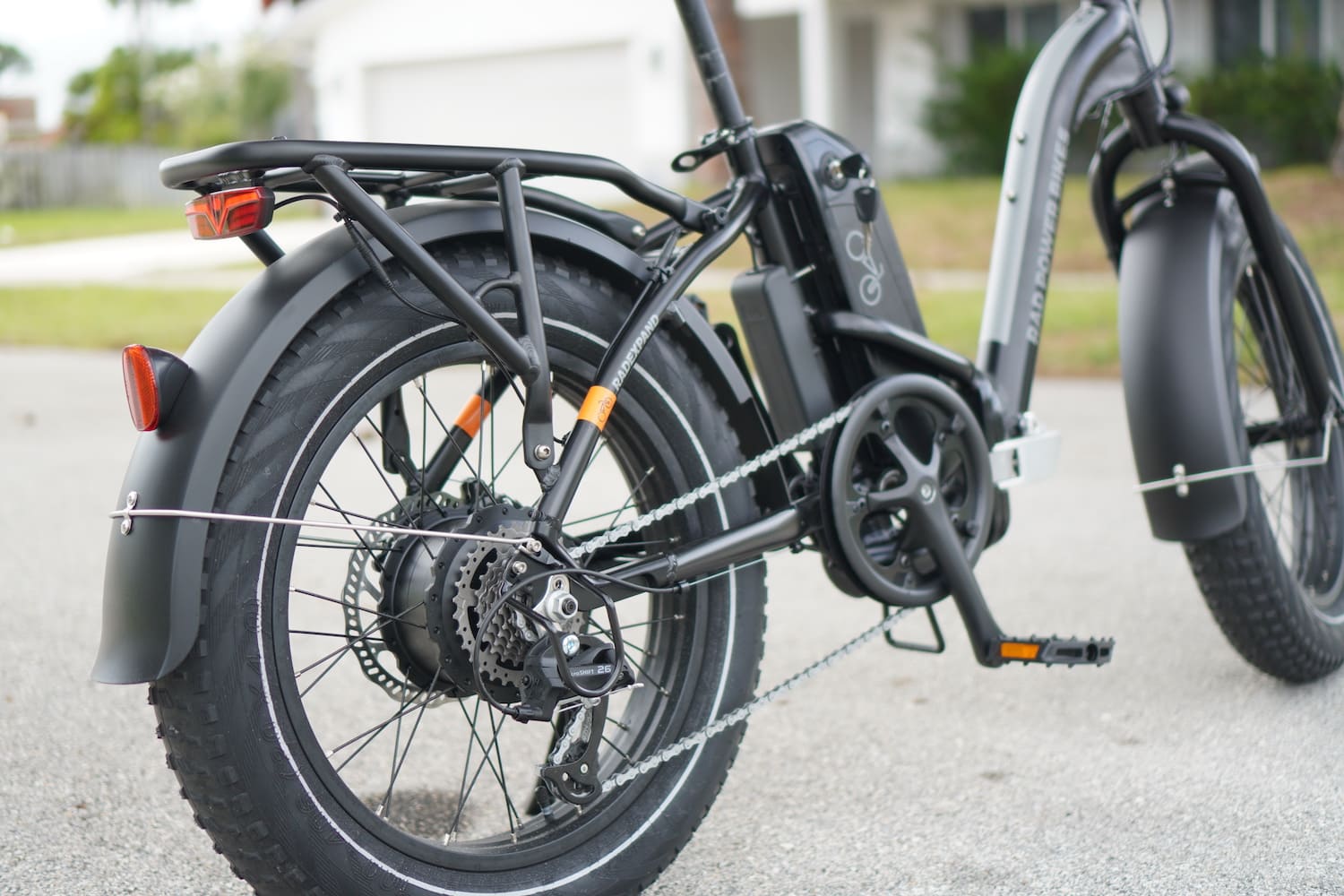
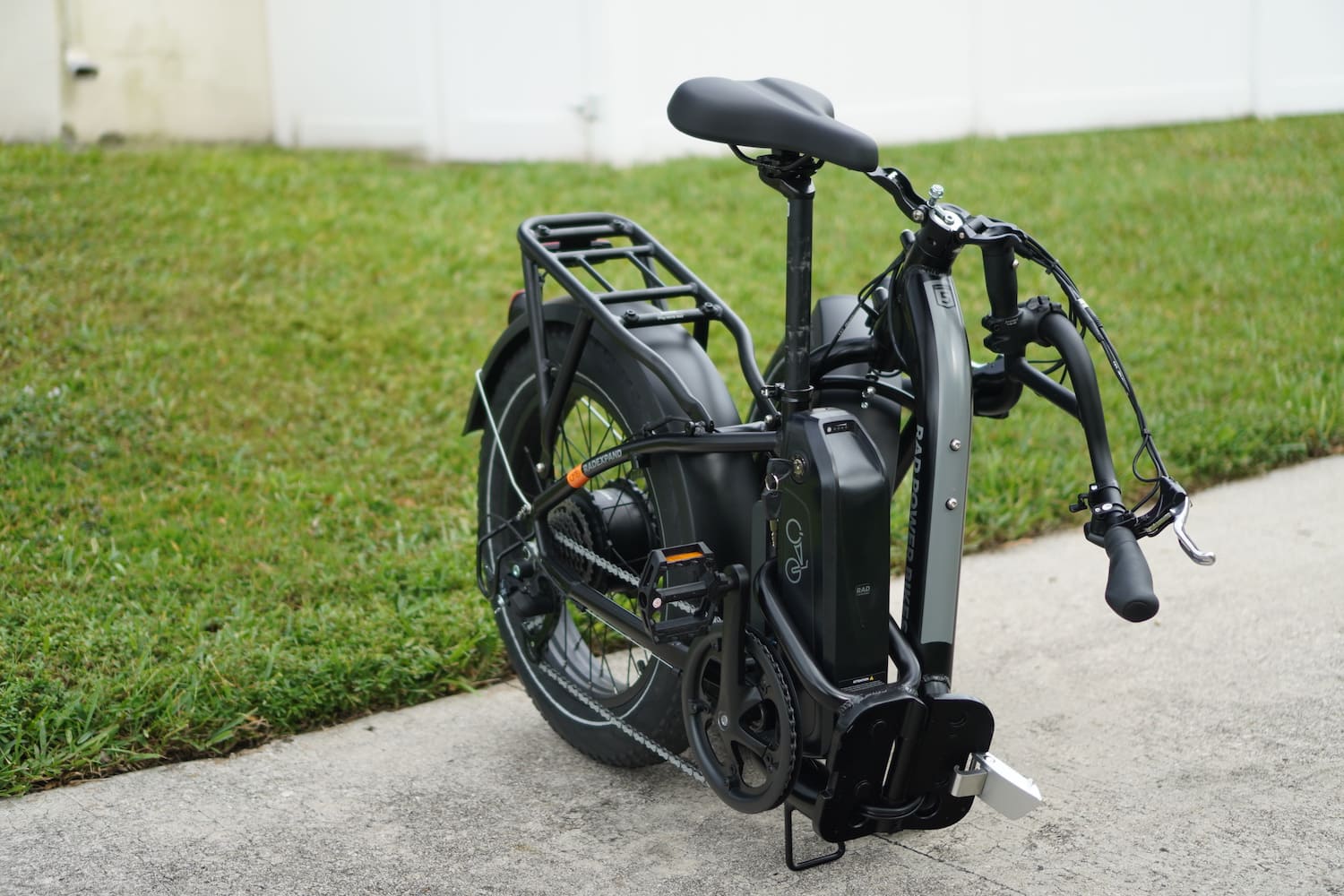
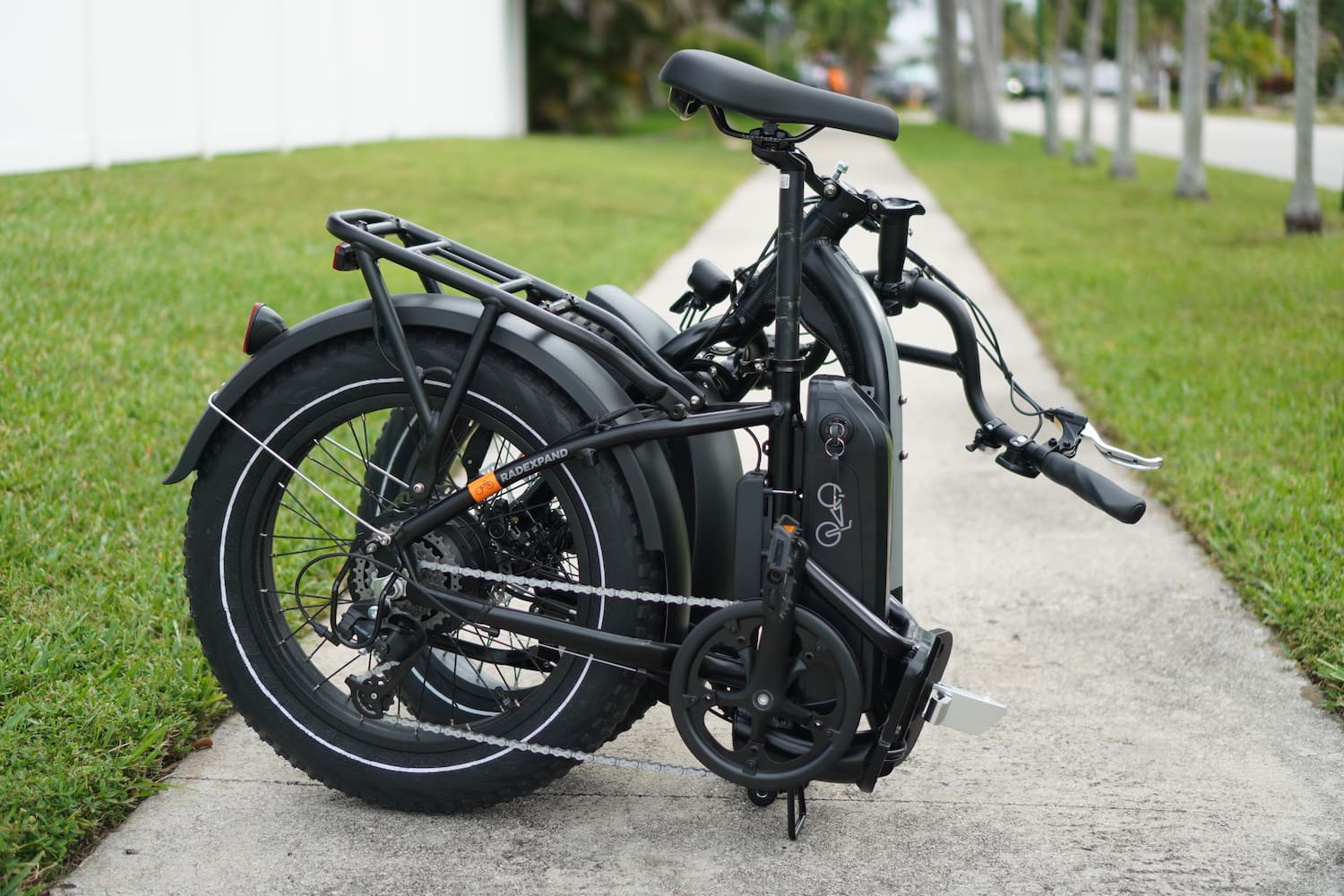
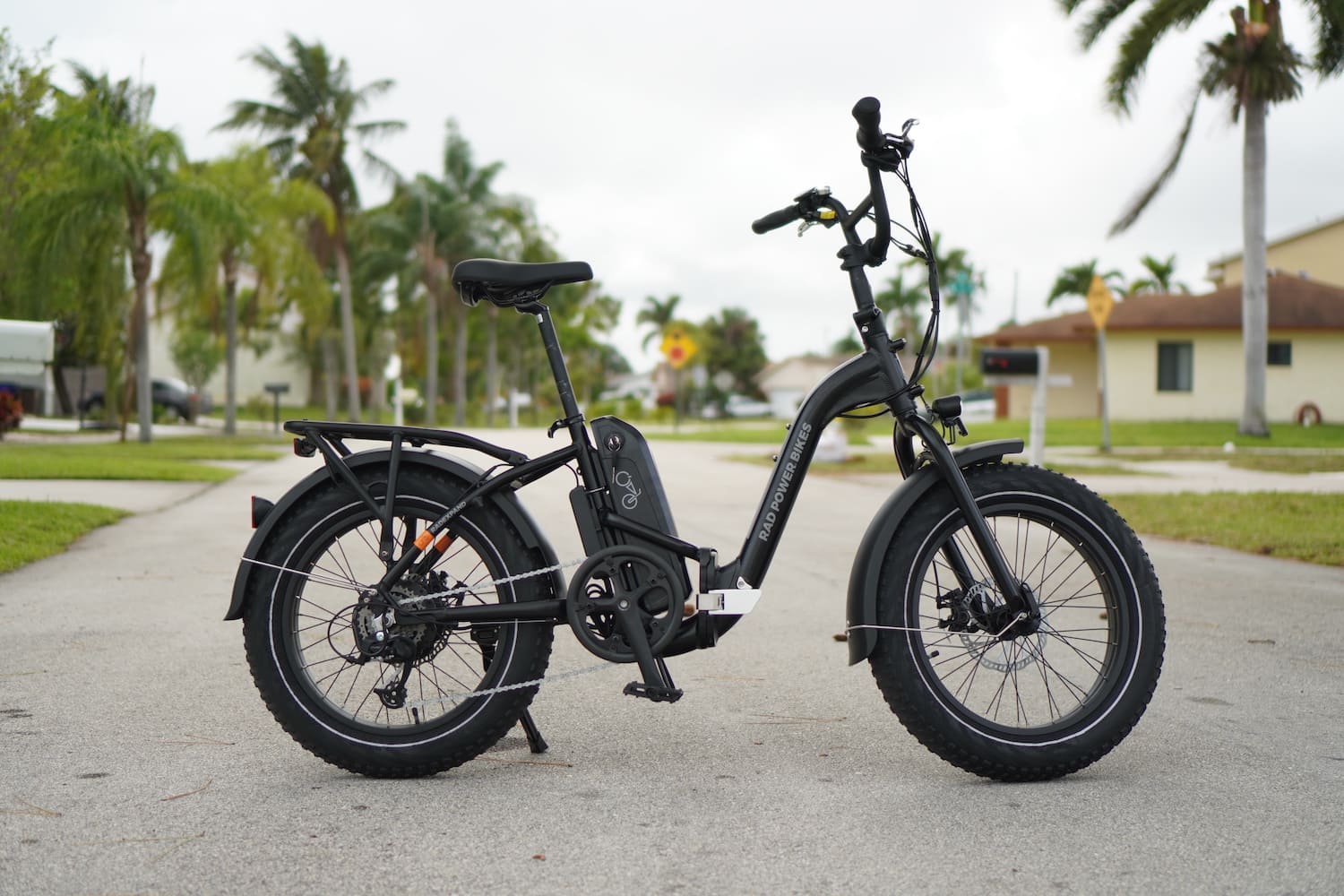
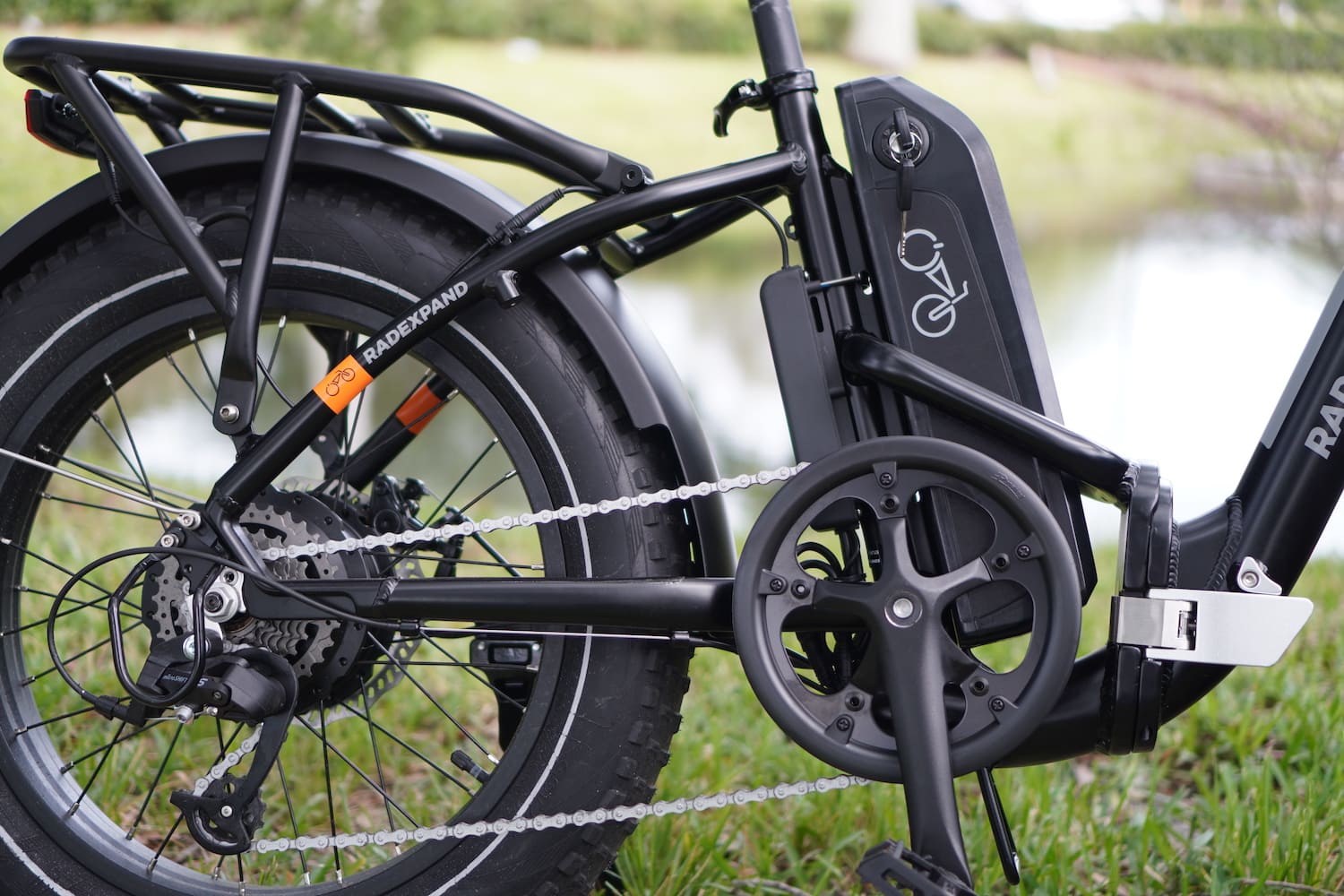
All told, there’s very little I can complain about here. The bike was a killer deal at its promotional $1,299 introductory price. Now at its (thanks, inflation), the RadExpand 5 is still a lot of bike for your money, not to mention Rad’s industry-leading service and support. But boy was it seriously tempting at that intro price, eh?
I still recommend it to folks who want most of the benefits of the RadRunner, but who prefer a folding package (and for such people who don’t require the awesome passenger capabilities of the Runner).
The RadExpand 5 certainly seems like a more than worthy replacement for the RadMini line and keeps me excited to see continued updates and innovation from Rad.
Subscribe to Electrek on YouTube for exclusive videos and subscribe to the podcast.
Author: Micah Toll
Source: Electrek



